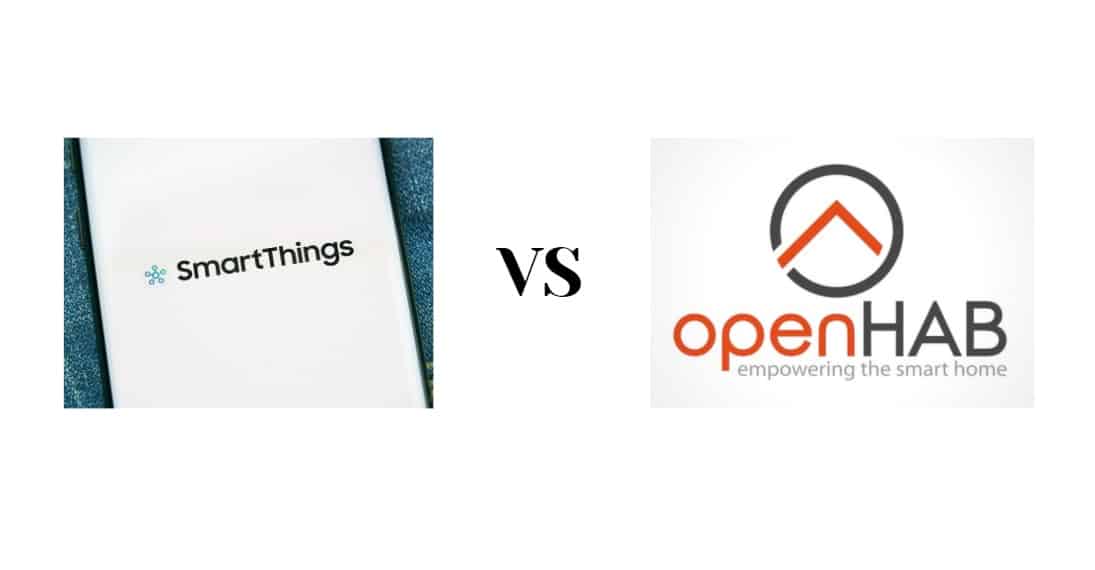
Smart homes are the trend these days and this trend has only been gathering momentum since the last decade. Why now and why this influx of technologies and services surrounding the home business? Well, it was an inevitable evolution of the technology boom of the past three decades.
Technology has come a long way and the rapid innovations in mobile and the internet sphere have given rise to the possibility of a smart home. One such innovation is the rise of smart home device managers. These devices are responsible for communicating between the different smart home devices available and allowing the user to manage all of these from their smartphones. The two such devices we are looking at today are the Samsung SmartThings and the open-source king openHAB.
SmartThings was conceived by Alex Hawkinson when he himself found trouble at his home. His company is now owned by Samsung which shows the innovation he made. SmartThings is primarily a cloud service that can either be controlled by the Hub device or directly from the SmartThings app.

On the other hand, openHAB has an entirely different approach. The guys behind this company want to give the center of attention to the user rather than the devices.

SmartThings Vs openHAB
Here we compare both these devices in full detail.
1. The Approach of the Companies
Both these companies have a totally opposite approach to their models. The SmartThings is a traditional company owned by parent Samsung and runs on the traditional business model. It offers a slew of offerings that include online services as well as smart home products. All of their services and products are interconnected and work smoothly with each other, and receive regular software updates.
OpenHAB on the other hand is open-source software that can be used to set up a smart home exactly how the person wants it to be. This involves downloading their software and modifying it according to our own needs and tinkering around with the smart home devices as we see fit.
2. Ease of Use
This is where differentiation between the two starts to seep through. The key thing to consider here is that one can either have the option of full-on customizability or full-on ease of use. Both of these offerings lie at the opposite end of the spectrum.
The SmartThings service is highly easy to use and at the same time, gives the ultimate peace of mind. But, it’s limited to support mainly for Samsung devices with other devices also available, but cannot be customized for exactly our needs.
OpenHAB on the other hand is a tedious service best suited for tech-savvy individuals. It is extremely customizable and can work with almost any smart home product and service. But it makes life hard for regular customers. So only go for it if you really mean it.
3. The Services Provided
SmartThings is natively integrated with every Samsung smart home product as well as service. Moreover, there are products like SmartThings Hub, SmartThings Wi-Fi, and more on offer. On top of that, they have a mobile app for controlling everything. Furthermore, everything is integrated into the cloud meaning you can control your home from anywhere in the world.
OpenHAB on the other hand is just software and nothing more.
4. Data Privacy
Although Samsung gives its guarantees, it is still a cloud-based platform and these are susceptible to hacks and misuse.
Nonetheless, openHAB uses an entirely different philosophy. Its focus is more on the Intranet of Things rather than the Internet of Things (IoT). Meaning all the data and usage remains within the home and no data transfers across the web. This ensures maximum safety for your data and maximum security for your home against foreign hacking.
5. Support
The concept behind openHAB is to build a sustainable and open platform service which can be worked upon by members of a community. This ensures that it will continue to get support long into the future with regular updates to its software which ensures compatibility for future devices. It is indeed a futureproof service.
On the contrary, Samsung does not have such long-term support. Instead, it has the regular software update pattern which lasts for a few years before the device gets obsolete.